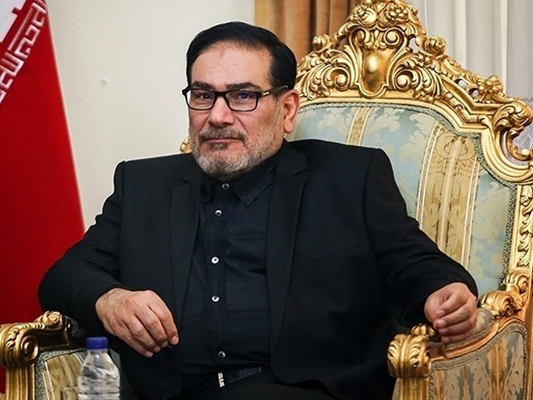Shamkhani, the secretary of Iran’s Supreme National Security Council, made the comment in an interview with Al Alam News Network.
“The Israeli regime took direct actions to assassinate [Iranian] nuclear scientists, produce the Stuxnet [computer] virus, and kill our [military] advisors in Syria,” said Shamkhani.
He said Israel is a “sworn enemy” of the Islamic Republic of Iran and has overtly threatened to take military action against the country over the past 40 years.
The senior official underlined the Israeli regime has also supported dissident and terrorist groups as well as the former Iraqi strongman Saddam Hussein’s regime.
“Israel’s hostile approach towards Iran has always been there,” said Shamkhani.
The official then touched upon Tel Aviv’s ratcheting up its anti-Iran rhetoric, so much so that its verbal threat against Tehran has turned into a marked threat.
“I believe the change in the tone of [the language used by] the Israeli regime’s officials is due to their frustration resulting from back-to-back defeats and failures on different fronts,” he said.
He underlined that terrorism contributed heavily to Israel’s security.
“The emergence of Takfiri terrorism in the region, bloodshed on the frontiers of the Muslim world, together with the destruction of important parts of the economic and military infrastructure of Islamic countries resulted in … golden years for Israel’s security,” Shamkhani noted.
“Now, with Takfiri terrorists being defeated in Syria and Iraq, for which Israel partly blames Iran, this golden period has come to an end, and Palestine has turned into the Muslim world’s most pressing issue once again,” he noted.
He said Iran will do whatever it takes to ensure its security.
“We will vigilantly take whatever actions and measures necessary to ensure Iran’s interests and security against any aggressor,” he said.
Elsewhere in his remarks, the top official touched upon Syria’s missile attack which came in response to Tel Aviv’s strikes.
“Over the past 25 years, the Zionist regime had not received any proper response to its acts of aggression such as its strikes against Syrian and Iraqi nuclear facilities, its attack on the Turkish ship MV Mavi Marmara, and shooting down an Egyptian plane,” said Shamkhani.
“Today, the Syrian army and government have such high self-confidence and power that they can shoot down the aircraft of the Israeli regime, hit its missiles in the sky and, thanks to intelligence operations, target and destroy key military sites of this regime in retaliatory operations immediately after Israeli aggression,” he noted.
“The Arab world and Islamic world take pride in this,” he said.
He said the Syrian missile attack also had the message that the “hit-and-run” era is over, and the Israeli regime should be answerable for its behaviour.
“This power and capability is the achievement of the axis of resistance and has created a new level of balance of power in the region,” he said.
Shamkhani then referred to Russia’s plan for Syrian army troops to be stationed on the border with Jordan.
“We strongly back Russia’s efforts to drive out terrorists from the Syria-Jordan border and to get the Syrian army to gain control of the border area,” he said.
“We regard this move as a positive step toward the Syrian government’s further control over the territories occupied by terrorist groups,” he said.
Elsewhere in his remarks, Shamkhani touched upon the victories of Syrian troops in their operations.
He said the back-to-back gains made by the Syrian army and popular forces on different fronts led to the full liberation of territories in the south of the country as well as the Rif Dimashq Governorate.
“With this new equation, an important part of the Syrian army units stationed in the south of the country can be redeployed to purge the remnants of terrorist elements from the north of the country and to counter the Israeli regime’s attacks,” he said.
“Therefore, the recent gains on the ground in Syria will have a strategic impact on security equations in the future,” the top official noted.
He further reiterated that Iranian military advisors have a limited presence in Syria at the request of the Syrian government to help in the fight against terrorism.
“Our advisory assistance will continue as long as the Syrian government asks us to do so,” he said.
He stressed that Iran regards the security of Syria as its own, and hence, the maintenance of stability in that country is an accomplishment for Iran as well.
